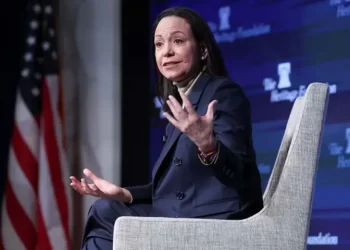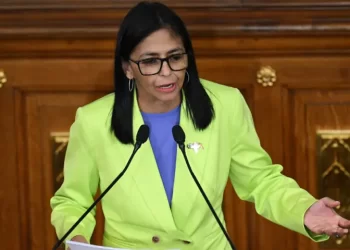ROME: Italian Prime Minister Giorgia Meloni’s decision not to back Ursula von der Leyen as European Commission chief was driven by fear of losing rightwing grassroots supporters, analysts say, but may curb her influence over EU choices.
The European Parliament elected von der Leyen for a second five-year term on Thursday to lead the bloc’s executive with support from centre-right, centre-left, liberal and green groups. She got 401 votes, with 284 against in a secret ballot in the 720-member chamber.
Meloni’s Brothers of Italy, part of the European Conservatives and Reformists group (ECR), revealed its decision after the vote when it said von der Leyen had shifted too far left, particularly on green pledges.
Even though von der Leyen did not need Meloni’s 24 lawmakers to win, the vote marked a shift from the prime minister’s past efforts to keep good relations with the Commission as Rome grapples with mammoth public debt.
“Meloni cares a lot about being consistent. She had said she would never vote with the left. When it became clear that her votes were not needed, she stuck to that pledge,” said Giovanni Orsina, politics professor at Rome’s Luiss university.
However, the move dismayed many Italian commentators who said the Commission may now be less indulgent towards Italy’s public finances and its faltering attempts to spend billions of euros of EU post-COVID recovery funds.
Italy PM Meloni expresses ‘solidarity’ with Trump, condemns violence
That remains to be seen, but Meloni’s first concern appeared to be fending off internal competition at home from her hard-right coalition ally, Matteo Salvini’s League.
“She is afraid of exposing herself on the right, and this fear overwhelmed everything else,” said Francesco Galietti, from Rome-based political risk consultancy Policy Sonar.
Core voters
Brothers of Italy is now polling at nearly 30% – its highest ever – while the League is around 8.5%, but Galietti pointed to volatility in Italian politics and said Meloni could not afford to alienate traditional voters.
Before moderating her positions after coming to power in 2022, Meloni was considered further to the right than Salvini, and used to advocate for Italy to leave the euro zone.









